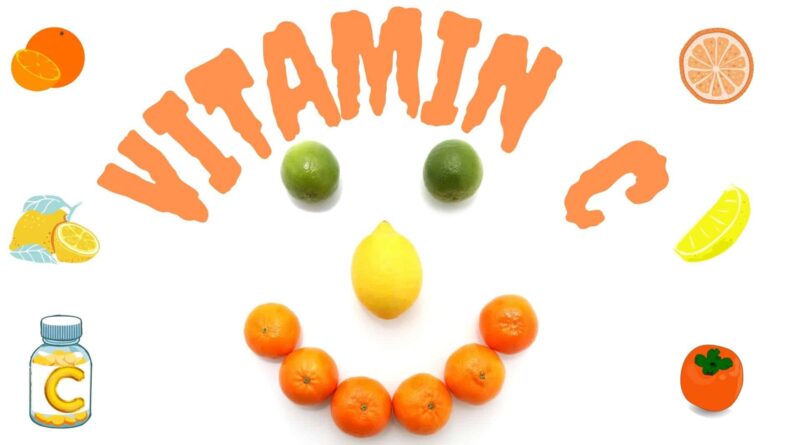What food products contain vitamin C?
Vitamin C is a water-soluble vitamin that is important for maintaining good health. The body does not store it significantly, as the excess is eliminated during the urine process, so the body needs this vitamin C daily in order to maintain good health and vitality. Vitamin C helps to easily absorb iron and minerals in food, protects cells from damage. Well then, What food products contain vitamin C? Let us find out below –
See also :
- 7 Healthy Tips for Teenagers
- What is Granola? Is Granola Healthy?
- 7 Home Remedies To Relieve Constipation Naturally
- 5 Easy Ways to Control Overeating Desire
- Spirulina – a natural way to strengthen immunity
- 8 Incredible Benefits of Mango Ginger
Benefits of Vitamin C
Vitamin C, also known as ascorbic acid helps the body maintain connective tissues including bones, skin, blood vessels and other important and vital functions in the body.
Classified as an antioxidant, the main task of vitamin C is to strengthen the immune system. It is also required to grow and repair cells and tissues throughout the body.
Vitamin C produces collagen as it a supporting ingredient for your skin and blood vessels. It also helps to repair and maintain bones and teeth.
In addition, it protects against heart disease, high blood pressure, osteoporosis, age-related macular degeneration, and asthma. This vitamin is also needed for the absorption of iron.
Improving PMS (monthly cycle) mood
Smokers of both sexes also need more vitamin C than the recommended dose.
Symptoms of vitamin C deficiency include skin bloating, gum problems, tooth loss, fatigue, impaired ability to prevent infection, increased bleeding, swelling of joints, hair loss, and nosebleeds. When there is a severe deficiency of this vitamin, it causes scurvy disease.
You can easily get the required amount of vitamin C through the diet. Fruits and vegetables are a major food source of this important nutrient.
Natural Beauty Tips – Beauty Tips
![]()
![]()

Food products containing vitamin C
The human body cannot manufacture vitamin C, it is an essential nutrient naturally available in certain foods such as vegetables and fruits and is also available as a dietary supplement. Here are some fruits and vegetables with high source of Vitamin C –
Kiwi
Kiwi contains about 70 milligrams of vitamin C per medium-sized fruit as well as fiber and flavonoids and carotenoids, antioxidants that help protect the body’s cells from infection.
Studies have shown that kiwi fruit rich in vitamin C may help reduce fatigue, lower cholesterol and improve immunity.
Cabbage
Half a cup of cooked cabbage provides 49 mg, or 54% of vitamin C for the body’s daily needs, and cabbage contains high fiber, vitamin K, folic acid, vitamin A, manganese and potassium.
Strawberries
Strawberries are rich in vitamin C, are low in calories, rich in fiber and antioxidants, and can be eaten as fruits or fresh juice.
One cup of half strawberries (152 grams) provides 89 mg of vitamin C, or 99% of the daily value, and strawberries contain a strong and varied blend of manganese, flavonoids, folates and other beneficial antioxidants.
Papaya
Papaya contains 62 mg of vitamin C per 100 grams (3.5 ounces), which accounts for 75% of the recommended daily dose.
Papaya also contains a good amount of vitamin A, potassium and calcium. Additionally, they contain beta-carotene, folic acid, fiber, magnesium and protein. They are also very low in calories and do not contain cholesterol.
Papaya helps protect against heart disease, improve digestion, protect vision, treat arthritis, improve skin, nourish hair, strengthen body immunity, help weight loss, prevent cancer and reduce signs of premature aging.
Broccoli
Broccoli contains a lot of vitamin C alongwith fiber and antioxidants that contribute to reducing inflammation. One of the best ways to cook it is by steaming for 5-6 minutes, which helps vegetables to retain a larger portion of vitamin C inside which is not possible in other ways such as boiling.
Lemon
A whole lemon, including its crust, provides 83 mg of vitamin C, or 92% of the daily value, so it is a popular source of vitamin C. It is an excellent recipe for cold and flu symptoms, and also contains antioxidants, increasing the health and immunity of the body.
Melon
Melons contain many nutrients including carotenoids, Vitamin B, potassium, magnesium, copper and flavonoids, as well as appropriate amounts of vitamin C.
Tomato
Vitamin C can be obtained from tomatoes by eating raw and not cooking, as vitamin C is low after cooking, so it’s best to eat it in the form of salad.
Parsley
Two tablespoons (8 grams) of fresh parsley contain 10 mg of vitamin C, equivalent to 11% of the daily value. It is also an important source of plant iron, and helps prevent and treat anemia, in addition to the presence of vitamin C, which facilitates the absorption of minerals in the body.
Potato
Contains a moderate percentage of vitamin C, and is also useful because it contains many useful nutrients including potassium and fiber. To take advantage of its elements avoid frying with oil and replace it by putting in the oven with the use of olive oil.
Cauliflower
Cauliflower is rich in various nutrients, including vitamin C, which is present in moderate amounts in accordance with the needs of the body, as well as vitamin K, folate and fiber.
Red Cherry
Only half a cup of red cherries contains 822 milligrams of vitamin C, which exceeds your daily need for this vitamin, and the cherry has cancer-resistant properties, prevents UV rays damage and improves immunity.
Green and red chili peppers
One green chili pepper contains 109 mg of vitamin C, equivalent to 121% of the daily value of your daily need, while a red chili pepper contains 65 mg, or 72% of your daily need.
Moreover, chili peppers are rich in capsaicin, the compound responsible for its spicy taste, which contains anti-pain and inflammation substances, which is a important vegetable to put into your daily diet when you develop cold and flu symptoms.
Guava
A single guava contains 126 mg of vitamin C or 140% of the daily nutritional value, plus it is rich in antioxidants known as lycopene, which give the body agility and vitality, improves immunity, reduce cholesterol levels, and pressure and heart problems.
Orange
A medium-sized orange provides 70 mg of vitamin C, which represents 78% of the daily value, and citrus in general is a rich source of vitamin C.
Useful Health Tips – How to boost your Immunity
Read Also :
- 12 Ways To Manage Depression Without Medication
- 7 Ways To Overcome Laziness To Exercise
- 7 Habits That Drain Your Energy
- 8 Foods That Increase the Risks of Heart Attacks
- 7 Healthy Tips for Teenagers
- What is Granola? Is Granola Healthy?
- Red clover and its medicinal properties
- 7 Home Remedies To Relieve Constipation Naturally
- 5 Easy Ways to Control Overeating Desire
- Heart Attack At A Young Age


